Inspiring Speakers (2023)
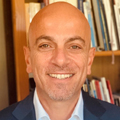
University of Cambridge, Cambridge, United Kingdom
Professor Antoniou is a genetic epidemiologist and leads a research team within the Department of Public Health and Primary Care.
His research focuses on understanding the cancer risks conferred by cancer susceptibility genes and advancing cancer risk prediction through the development of novel risk models.
He leads the CanRisk research programme on personalising cancer risk prediction for prevention and early detection and empowering the use of cancer risk prediction in routine clinical practice.
Invited Speaker, Symposium

Session Chair, Symposium

Clinique Ovo, Montréal, QC, Canada
Invited Speaker, Public Conference

Center for Cancer Genetics and Prevention,
Dana-Farber Cancer Institute / Harvard Medical School, Boston, MA, United States
Dr. Bober is a senior psychologist at the Dana-Farber Cancer Institute and an Associate Professor in the Dept of Psychiatry at Harvard Medical School. At the Dana-Farber, Dr. Bober serves as the program psychologist within the Division of Cancer Genetics and Prevention, and she is the Founding Director of the Dana-Farber Sexual Health Program. As a clinician, she has worked with individuals, couples and families facing the challenges of hereditary cancer risk for over 20 years. Dr. Bober’s research interests primarily center on cancer survivorship, cancer risk, sexual health, and quality of life.
Invited Speaker, Symposium, Public Conference

St. Michael's Hospital, Toronto, ON, Canada
Dr. Yvonne Bombard is a genomics health services researcher and Scientist at the Li Ka Shing Knowledge Institute of St. Michael’s Hospital, Unity Health Toronto. She is an Associate Professor at the Institute of Health Policy, Management and Evaluation at the University of Toronto and directs the Genomics Health Services Research Program at St. Michael’s Hospital. Dr. Bombard holds the Canada Research Chair in Genomics Health Services and Policy.
Her research focuses on evaluating the clinical adoption of new genomic technologies on patients, providers and the healthcare system. She also develops digital tools for genomic medicine and conducts patient engagement to advance health technology assessment and service delivery. Dr. Bombard is active in international policy advisory committees, where her research informs policy development. She currently serves as a Board member of the American Society of Human Genetics, CIHR Institute of Genetics and Exactis Innovation.
Dr. Bombard has been awarded a CIHR Foundation grant as an Early Career Investigator and received ‘Rising Star’ awards from the Canadian Agency for Drugs and Technologies in Health (CADTH), CIHR’s Institute of Genetics, Health Services and Policy Research, CIHR’s Maud Menten Early Career Prize in Genetics and recently received Canadian Cancer Society’s early career investigator award for her work and policy change.
Invited Speaker, Symposium
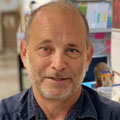
National Human Genome Research Institute, Bethesda, MD, United States
Dr. Brody is a Senior Investigator in the National Human Genome Research Institute (NHGRI) at the NIH. He studied biology with an emphasis on genetics as an undergraduate at Penn State University. He received his PhD in Human Genetics from Johns Hopkins University in 1991. He then held postdoctoral appointments at Johns Hopkins School of Medicine and the University of Michigan. He joined the faculty of NHGRI in 1993 and from 2010 to 2014 he served as the Chief of NHGRI’s Genome Technology Branch. In 2013 he was named Director of the Division or Genomics and Society one of NHGRI three extramural divisions. He also serves as the Chief Scientific Officer for NIH’s Center for Inherited Disease Research, a high throughput genotyping and sequencing center that serves 10 of NIH’s 27 institutes.
Dr. Brody’s lab investigates the genetics of cancer, metabolism, birth defects and the use application of genetics to clinical care. As head of the Genetics and Environment Interaction Section, he is interested in using multidisciplinary approaches to understand how inherited variations lead to perturbations in normal metabolic pathways and cause disorders such as cancer and birth defects. His laboratory investigates mutations in two known breast cancer-linked genes, breast cancer gene 1 (BRCA1) and breast cancer gene 2 (BRCA2), and their roles in inherited breast and ovarian cancer susceptibility. His group discovered an unusually high frequency of specific BRCA1 mutations in the Jewish population. The Brody lab is also studied the function of BRCA1 using combined cell biological and biochemical approaches.
Session Chair, Symposium
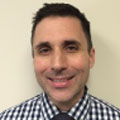
Dr. Clarke is a gynecological pathologist with a strong interest in
molecular characterisation.
He uses his expertise with molecular pathology techniques to
study gynecological tumours, common and rare.
Invited Speaker, Symposium

UC Santa Cruz Genomics Institute,
Santa Cruz, CA, United States
Dr. Melissa Cline is an Associate Research Scientist at the UC Santa Cruz Genomics Institute. She is the Program Manager of the BRCA Challenge, a consortium launched by the Global Alliance of Genomics and Health to pioneer methods for privacy-preserving data sharing with the goal of expediting genetic variation. She leads the development of BRCA Exchange, the world’s largest public repository on BRCA variation, and on federated analysis methods for germline variant interpretation. Dr Cline received her Ph.D. from UC Santa Cruz in 2000. Previously, she has worked as a Senior Research Scientist at Affymetrix and as a postdoctoral researcher at the Pasteur Institute and UC Santa Cruz.
Invited Speaker, Symposium
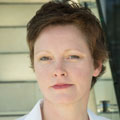
Invited Speaker, Symposium

Chair of the International Symposium on Hereditary Breast and Ovarian Cancer
Dr. Harley Eisman is Co-Founder of the Hereditary Breast and Ovarian Cancer Foundation. Dr. Eisman completed his medical school and General Pediatric training at McGill University. Subsequently, he completed a Fellowship in Pediatric Emergency medicine at the Montreal Children’s Hospital, where he has been on staff since 1997. Dr. Eisman recently completed a 13-year tenure as Director of Pediatric Emergency Services at the Montreal Children’s hospital. Dr. Eisman has extensive community pediatric experience in that he follows over 2000 families at Montreal’s Children’s Care Clinic, and since 2015 been the Pediatric Director of The Children’s Clinic which offers General Pediatric, Specialty Pediatric, and Allied Health consultation to the Greater Montreal Area. Dr. Harley Eisman’s related interests include Medical Informatics, Health Care Delivery, Patient Flow and Experience, and Cancer advocacy. Dr. Eisman and his wife are the proud parents of three children.
Co-Chair, Symposium

Grace-Ann Fasaye is a senior genetic counselor at the National Cancer Institute where she provides genomics support for studies within the Center for Cancer Research. Since the beginning of her 23 year career she has been involved in cancer health equity and genetic counseling diversity efforts. She is the cofounder of GOLDEN- the Genetics Opportunity Learning Development and Empowerment Network- which seeks to increase the number of Black genetic counselors by raising awareness of the profession and mentoring prospective genetic counselors.
Invited Speaker, Symposium

Dr. Foulkes is a physician trained in medicine in the United Kingdom and in Canada. He obtained his Ph.D. from the Imperial Cancer Research Fund, London, in 1994, before moving to Montréal later that year. He obtained his Québec specialist certification in Medical Genetics in 2000. His main research interests include investigation of the hereditary factors in breast and colorectal cancer, as well as in rare tumors.
He is a James McGill Professor in the Departments of Medicine, Human Genetics and Oncology and the Director of the Cancer Genetics program at McGill University in Montréal, QC, Canada. Among others, he is funded by the Canadian Institutes of Health Research (CIHR), the Quebec Breast Cancer Foundation, the C17 Research Fund and the US Department of Defense.
Co-Chair, Symposium

Boston, MA, United States
Dr. Garber is the Chief of the Division for Cancer Genetics and Prevention at Dana-Farber Cancer Institute and a Professor of Medicine at Harvard Medical School. She also consults with the Pediatric Cancer Genetic Risk Program at Dana-Farber/Boston Children's Cancer and Blood Disorders Center. Dr. Garber conducts research in clinical cancer genetics, with a special focus in the genetics of breast cancer. She has played a major role in the development of national guidelines in cancer genetics. She is also a leader in research into the characteristics and treatment of triple negative or basal-like breast cancer, the most common form in women with BRCA1 mutations. Her translational research focuses on the evaluation of novel agents targeting DNA repair defects in breast cancer, including PARP inhibitors for treatment and prevention of breast cancer and other BRCA-associated cancers.Dr. Garber is a past president and current member of the Foundation Board of the American Association for Cancer Research (AACR). She serves on the National Cancer Advisory Board of the National Cancer Institute and was elected into the National Academy of Medicine in 2013. She also serves as the Chair of the Breast Cancer Research Foundation (BCRF) Scientific Advisory Board. She is an ASCO Statesman and a Fellow of the AACR Academy.
Invited Speaker, Symposium

Memorial Sloan Kettering Cancer Center,
New York, NY, United States
Jada G. Hamilton, PhD, MPH, is a social and health psychologist working at the intersection of behavioral science, cancer prevention, and genomics. Dr. Hamilton received a BA in Genetics and Psychology from Ohio Wesleyan University, an MA and PhD in Social and Health Psychology from Stony Brook University, and an MPH from the Mailman School of Public Health at Columbia University, and she completed a postdoctoral fellowship as part of the National Cancer Institute’s Cancer Prevention Fellowship Program. Dr. Hamilton’s program of research addresses the intersection of behavioral science, cancer prevention, and genomics, with the goal of translating advances in genetic and genomic medicine into improved cancer care that is of high quality, aligned with patient preferences, and ultimately improves public health.
Invited Speaker, Symposium
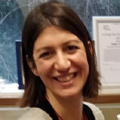
St George's Hospital, London, United Kingdom
Dr. Helen Hanson is a Consultant in Cancer Genetics at St. George’s in London. She undertook her Clinical Genetics Training in London, also completing an MD(Res) studying Li-Fraumeni syndrome. She has a continued interest in LFS, along with clinical guideline development. Alongside her clinical role, Helen currently works on the CanGene-CanVar programme, developing clinical guidelines for cancer predisposition genes. Helen is currently Chair of the UK Cancer Genetics Group and organises a National Cancer Genetics MDT.
Invited Speaker, Symposium

Genetic Oncology, Department of Human Genetics, McGill University, Montréal, QC, Canada
Laura Hayes graduated in Nursing in 1990. As the Clinical Care Coordinator for the BRCA1 and BRCA2 mutation carriers, Laura gets to put her nursing skills into practice by managing the screening and clinical aspects of patient care, as well as providing support and advocacy.
Chair, Public Conference
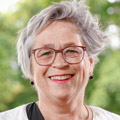
Department of Human Genetics, Radboud University Medical Center, Nijmegen, The Netherlands
Professor Hoogerbrugge, is a full professor in hereditary cancer at Radboud University Medical Center. Her ambition is to improve detection, diagnosis and treatment of hereditary cancer and prevent cancer in relatives specifically in PHTS. Her team detected that rare mutations in the NTHL1 gene, previously associated with colorectal cancer, also can cause breast cancer. She is the coordinator of the European Reference Network on Genetic Tumour Risk Syndromes (ERN GENTURIS) (www.genturis.eu).
Invited Speaker, Symposium

Session Chair, Public Conference

Cleveland Clinic, Cleveland, OH, United States
Dr. Hurley, a licensed clinical psychologist at the Cleveland Clinic, has specialized for twenty years in hereditary cancer risk. After completing her A.B. at Bryn Mawr College, Ph.D. at Temple University, and postdoctoral fellowship at the Mount Sinai School of Medicine, she conducted NCI-funded research funded on surgical decision-making at Memorial Sloan-Kettering. She continued in private practice in Manhattan and taught graduate psychology at TC-Columbia University. She frequently presents for national/international audiences and is on the national advisory boards for FORCE, Bright Pink, Sharsheret, and the Cancer Support Community. In 2014, Dr. Hurley received FORCE’s Spirit of Empowerment Award for Individual Commitment.
Invited Speaker, Symposium, Public Conference

Peter MacCallum Cancer Centre,
Melbourne, VIC, Australia
Professor Paul James is a Clinical Geneticist from Melbourne. He is the Director of the Parkville Familial Cancer Centre at the Royal Melbourne Hospital and Peter MacCallum Cancer Centre, and Head of Clinical Genetics in the Department of Genomic Medicine (RMH). He is the group leader of Familial Cancer Research at Peter MacCallum and leads a program of research involving familial disorders with a focus on translational studies that examine integration of genomic findings into clinical practice.
Invited Speaker, Symposium

Centre of Genomics and Policy, McGill University, Montréal, QC, Canada
Yann Joly is the Research Director of the Centre of Genomics and Policy (CGP). He is a full Professor at the Faculty of Medicine and Health Sciences, Department of Human Genetics cross-appointed at the Bioethics Unit, at McGill University. He was named advocatus emeritus by the Quebec Bar in 2012 and Fellow of the Canadian Academy of Health Sciences in 2017. His research interests lie at the interface of the fields of scientific knowledge, health law (biotechnology and other emerging health technologies) and bioethics. He has published his findings in over 120 peer-reviewed articles featured in top legal, ethical and scientific journals.
Invited Speaker, Symposium

Raymond Kim is a Medical Geneticist at the University of Toronto. He is Medical Director of the Familial Cancer Clinic at Princess Margaret Cancer Centre which identifies and follows all hereditary cancer syndromes. His interests include genomics in hereditary cancer patients and cell free DNA.
Invited Speaker, Symposium

Professor Jonathan Ledermann is the Clinical Director at UCL Cancer Institute and a Consultant Medical Oncologist at UCL Hospitals, London. He initiated the concept of trials of maintenance therapy with PARP inhibitors has led many national and international trials in ovarian cancer. He is the past Director of the CRUK & UCL Cancer Trials Centre, which he led for two decades, and a Senior Investigator for the NIHR and Fellow of the Academy of Medical Sciences. He is the Editor for ESMO Gynaecological Cancer Practice Guidelines and the past Vice-President of ESGO.
Invited Speaker, Symposium

Toronto, ON, Canada
Dr. Malkin is Professor of Pediatrics and Medical Biophysics in the Temerty Faculty of Medicine, University of Toronto. He holds the CIBC Children’s Foundation Chair in Child Health Research, is a pediatric oncologist, Director of the Cancer Genetics program, and a Senior Scientist in the Genetics and Genome Biology Program at The Hospital for Sick Children in Toronto.
Dr. Malkin is the Lead of the SickKids Precision Child Health initiative. He is co-Director of the SickKids Cancer Sequencing (KiCS) program which integrates and translates next generation sequencing into clinical care of children with cancer, and Director of the pan-Canadian multi-institutional PRecision Oncology For Young peopLE (PROFYLE) initiative which is establishing a pipeline to incorporate next generation sequencing into novel clinical trials (‘precision oncology’) for children and young adults with hard-to-treat cancers across Canada. Dr. Malkin’s research program focuses on genetic and genomic mechanisms of childhood cancer susceptibility which he has explored particularly in the context of TP53 and Li-Fraumeni syndrome. Recently, his work has addressed the application of genomics to develop rational clinical surveillance and treatment guidelines for children and adults at genetic ‘high risk’ for cancer.
He has published over 250 peer-reviewed articles and has received several awards recognizing his dedication to clinical care, advocacy, research, medical education and mentorship.
Invited Speaker, Symposium

Consultant Gynaecological Oncologist
Wolfson Institute of Population Health,
Queen Mary University of London, London, United Kingdom
Ranjit Manchanda is a Professor (co-lead Cancer Prevention Unit) at Wolfson Institute of Population Health, Queen Mary University of London; Consultant Gynaecological Oncologist at Barts Health NHS Trust, London, UK; Honorary Professor Department of Health Services Research, London School of Hygiene & Tropical Medicine; and holds the Infosys Chair in Oncology at AIIMS, Delhi, India. Ranjit’s research interests are focused around Targeted Precision Prevention. This includes population-based genetic testing, mainstreaming genetic testing and precision medicine approaches for risk prediction, stratification, targeted screening, cancer prevention and consequent economic evaluations. He is the Principal Investigator of PROTECTOR, PROTECT-C, DETECT, PROMISE-Pilot, GCaPPS trials, and SIGNPOST, JHCR, UKCOGS, PRESCORES, RRESDO studies.
Invited Speaker, Symposium

University Health Network, Toronto, ON, Canada
Jeanna is a certified genetic counsellor working at the Bhalwani Familial Cancer Clinic at the Princess Margaret Cancer Centre. Jeanna received her MSc in genetic counselling from the University of Toronto in 2010 and her PhD from Lawrence S. Bloomberg Faculty of Nursing at the University of Toronto in 2022. Jeanna’s research focusses on the implementation and evaluation of novel genetic counselling and testing strategies for hereditary cancer risk.
Invited Speaker, Symposium

Women's College Research Institute, Toronto, ON, Canada
Invited Speaker, Symposium

Women’s College Hospital, Toronto, ON, Canada
Dr. Narod is a world-leader in the field of breast and ovarian cancer. He has shaped current knowledge of how to assess breast and ovarian cancer risk and reduce its mortality among carriers of BRCA1 and BRCA2 mutations. He studies various aspects of cancer prevention and screening. He is a Tier I Canada Research Chair in Breast Cancer, a University of Toronto professor in the Dalla Lana School of Public Health and the Department of Medicine, and a senior scientist at Women’s College Research Institute, where he leads the Familial Breast Cancer Research Unit.
In 2012, Dr. Narod was elected a Fellow of the Royal Society of Canada. He holds two honorary degrees. He received the 2016 Killam Prize in health sciences and the 2015 Basser Global Prize. With more than 900 peer-reviewed publications and an h-index of 114, Dr. Narod is one of the most cited cancer researchers in the world.
Invited Speaker, Symposium

Associate Dean for Global Health,
Director, Center for Clinical Cancer Genetics,
University of Chicago Medicine, Chicago, IL, Unites States
Walter L. Palmer Distinguished Service Professor of Medicine and Human Genetics and founding director of the Center for Clinical Cancer Genetics and Global Health at the University of Chicago Medicine, Olopade’s research is focused on gaining a better understanding of the root causes and genomic basis of cancer in diverse populations. She has published extensively on genetic and non-genetic risk factors for breast cancer and is internationally renowned for her work in inherited cancer syndromes and clinical expertise in early detection and prevention of breast cancer in high risk women.
Olopade has been elected to the most prestigious academies and societies including the National Academy of Science, National Academy of Medicine, the American Academy of Arts and Sciences and the American Philosophical Society. Olopade served for six years as a member of the National Cancer Advisory Board and Chair of the Sub-Committee on Global Cancer Research under the Obama Administration. Olopade has received numerous honors and awards including honorary degrees from several universities, including the 2021 William L. McGuire Memorial Lecture Award, Franklin Roosevelt Freedom from Want Medal, The Order of Lincoln, Officer of the Order of the Niger, and a 2005 MacArthur Fellowship for “translating findings on the molecular genetics of breast cancer in African and African-American women into innovative clinical practices in the United States and abroad.”
Invited Speaker, Symposium

Dr. Pal is a Clinical Geneticist based at the Moffitt Cancer Center in Tampa, FL. Her research has consistently focused on inherited cancer predisposition spanning the cancer prevention and control continuum, including efforts among underserved and minority women. Additionally, she has investigated the delivery of genetic services, including identification and access to genetic services, and factors associated with quality of care. These efforts include the development of the Inherited Cancer Registry (ICARE) Initiative through which she has partnered with patients and practitioners to provide opportunities for outreach, education and research focused on inherited cancer predisposition.
Invited Speaker, Symposium

McGill University Health Centre, Montréal, QC, Canada
Laura received her Master of Science degree in Genetic Counselling from the University of Toronto in 2005 and joined the Division of Medical Genetics at the McGill University Health Center (MUHC) shortly after graduation where she remains today. She is certified by both the American Board of Genetic Counselors and the Canadian Association of Genetic Counsellors. Laura has over 17 years of clinical experience counselling patients and families at risk for a variety of hereditary cancer and neoplasia syndromes, both in the adult and pediatric settings. She is an Assistant Professor in the McGill Department of Human Genetics and is actively involved in teaching, clinical research, and supervision of genetic counselling students. Laura has contributed to the development and implementation of mainstreaming genetic testing for a variety of tumour types at her hospital institution. Her research interests are in the areas of hereditary cancer, biomedical ethics, and alternative models of genetic service delivery to improve access to cancer genetic testing.
Session Chair, Symposium

David Peloquin is a partner in Ropes & Gray's health care group based in Boston who advises clients on a wide range of legal and regulatory issues in the area of clinical research, data privacy, provision of health care services and related activities. David guides clients through complex regulatory questions arising under regulations on human subjects research, data privacy regulations, and state and federal fraud and abuse laws and health care licensing requirements. David is also a member of the firm’s digital health practice and frequently advises clients on the use of digital technologies in research and clinical settings.
Invited Speaker, Symposium
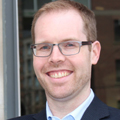
Dr. Trevor Pugh, PhD, FACMG is a cancer genomics researcher, board-certified molecular geneticist, and holder of the Canada Research Chair in Translational Genomics. He is appointed as Associate Professor in the University of Toronto Department of Medical Biophysics, Senior Scientist at the Princess Margaret Cancer Centre, and Senior Investigator at the Ontario Institute for Cancer Research. He directs the Joint Genomics Program, which provides access to emerging genome technologies as well as clinically-reported whole genome and cell-free sequencing under CAP/CLIA-accreditations. Most recently, he was recognized by Canada's Top 40 Under 40 and the Canadian Cancer Society Bernard and Francine Dorval Prize.
Invited Speaker, Symposium

Memorial Sloan Kettering Cancer Center, New York, NY, United States
Jorge S. Reis-Filho is the Director of Experimental Pathology and Director of the Experimental Pathology Fellowship Program at MSKCC. Dr. Reis-Filho has published over 570 peer reviewed articles, is a Deputy Editor of npj Breast Cancer, and an Associate Editor of the Journal of the National Cancer Institute and the Journal of Pathology. Dr. Reis-Filho’s current research interests are in the development of biomarkers and in the establishment of a predictive classification for breast cancers based on their patterns of DNA repair defects and genetic instability, and in defining the causes and impact of intra-tumor genetic heterogeneity in cancers.
Invited Speaker, Symposium

Memorial Sloan Kettering Cancer Center, New York, NY, United States
Dr. Robson graduated from the University of Virginia School of Medicine in Charlottesville, Virginia, and did his internal medicine residency and hematology-oncology fellowship training at Walter Reed Army Medical Center in Washington DC. He is currently Chief of the Breast Medicine Service in the Department of Medicine at Memorial Hospital in New York, an attending physician on Breast Medicine and Clinical Genetics Services, and a Member of the Memorial Sloan Kettering Cancer Center. His clinical research has concentrated on the optimal application of germline information to the management of cancer patients, particularly those with breast cancer. He has been a lead investigator for a number of trials of PARP inhibitors in patients with BRCA mutation – associated breast cancer. In addition to developing PARP inhibition as a therapeutic strategy, he is currently developing new models for the acquisition of germline information, including "mainstreaming" through test ordering by primary oncology providers and broad genomic screening in the context of somatic mutational profiling. He is currently investigating the use of polygenic risk scores in facilitating decision-making among women with or without an inherited predisposition. He serves on the editorial board of the Journal of Clinical Oncology and is an associate editor for the Journal of the National Cancer Institute. He is past chair of the Ethics Committee of the American Society of Clinical Oncology and has served several terms on the ASCO Cancer Prevention Committee and its Cancer Genetics subcommittee.
Invited Speaker, Symposium

Mount Sinai Center for Transgender Medicine and Surgery,
Mount Sinai Health System, New York, NY, United States
Joshua Safer is the Executive Director of the Mount Sinai Center for Transgender Medicine and Surgery in New York City and Professor of Medicine at the Icahn School of Medicine at Mount Sinai.
Dr. Safer is a co-author of the Endocrine Society guidelines for the medical care of transgender patients, the transgender hormone treatment sections for UpToDate, the current transgender medical care review in the New England Journal of Medicine and the current review of transgender medical care in Annals of Internal Medicine.
Dr. Safer was the inaugural president of the United States Professional Association for Transgender Health (USPATH). Dr. Safer serves as medical curriculum lead for the Global Education Institute (GEI) of the World Professional Association for Transgender Health (WPATH) and has been a scientific co-chair for multiple WPATH international meetings.
Invited Speaker, Symposium

Netherlands Cancer Institute, Amsterdam, and Leiden University Medical Center, Leiden,
The Netherlands
Professor dr. Schmidt is head of the Division of Molecular Pathology at the Netherlands Cancer Institute and a Professor of genetic epidemiology of (breast) cancer at Leiden University Medical Center, the Netherlands. The research of her group focusses on germline and somatic variants related to breast cancer risk and outcome, including long-term survival and second tumors. They also conduct applied research on ethical, legal and social implications (ELSI) of use of patient data and biospecimens. Professor Schmidt has been involved in the set-up and curation of national and international breast cancer cohorts and contributed importantly with peer-reviewed publications to the breast cancer field. She co-leads the pathology and survival working group of the Breast Cancer Association Consortium and led a large EU grant, B-CAST, focusing on stratification of breast cancer risk and prognosis.
Invited Speaker, Symposium

BC Cancer, Vancouver, BC, Canada
Dr. Kasmintan Schrader is a Clinician-Scientist, Medical Geneticist who received her PhD in Pathology and Laboratory Medicine at the University of British Columbia. She trained in cancer susceptibility gene discovery at Memorial Sloan Kettering in New York and returned to BC in 2014 to build the Familial Pancreatic Cancer Program. In 2016, she became co-Medical Director of BC Cancer’s Hereditary Cancer Program and in 2021 was awarded a Tier 2 Canada Research Chair in Clinical Cancer Genetics and Genomics. Dr. Schrader investigates the utility of germline variation in overall cancer care and prevention; in order to harness precision oncology for the benefit of patients and families.
Invited Speaker, Symposium

Full Professor, Department of Molecular Medicine,
Faculty of Medicine, Université Laval
CHU de Québec – Université Laval Research Center, Québec, QC, Canada
Since the early 90s, Professor Simard’s work has focused on deciphering the contribution of genetic factors in the susceptibility of hormone-sensitive cancers. He heads, since 2001, a large interdisciplinary and international research teams on genetic susceptibility to breast cancer bringing together molecular geneticists, epidemiologists, biostatisticians, clinicians, and ethicists from North America and Europe.
He led a large-scale project entitled Personalized Risk Stratification for Prevention and Early Detection of Breast Cancer (PERSPECTIVE, 2013-2018), designed to develop the tools needed to implement a risk stratification approach that would target breast cancer screening in women most likely to develop the disease. Currently, he leads the Personalized Risk Assessment for Prevention and Early Detection of Breast Cancer: Integration and Implementation (PERSPECTIVE I&I) project designed to generate real-world evidence on acceptability, uptake and cost-effectiveness as well as addressing socio-ethical and legal issues of a risk-based screening approach in the Canadian public health care system.
Session Chair, Symposium
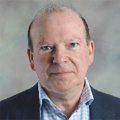
Dr. Spatz holds a Canada Research Chair in Molecular Pathology and is Co-Chairman of the National Cancer Institute of Canada Melanoma Committee. He served as Chairman of the EORTC Melanoma group, and as President of the French division of the International Academy of Pathology. Dr. Spatz leads an international research group on cutaneous melanoma. His current research involves the X chromosome role in metastatic potential and key factors associated with cancer progression. He has authored more than 150 original scientific papers, reports, review articles, and books.
Session Chair, Symposium

QIMR Berghofer Medical Research Institute,
Brisbane, QLD, Australia
Amanda Spurdle is an NHMRC Investigator Fellow at the QIMR Berghofer Medical Research Institute. She co-founded and now leads the ENIGMA international consortium to develop and apply methods to evaluate variants in breast/ovarian cancer susceptibility genes. She leads the ClinGen BRCA1/2 Variant Curation Expert Panel, and contributes to multiple other Panels for hereditary cancer gene variants.
Invited Speaker, Symposium

Cambridge, United Kingdom
Marc Tischkowitz is a Professor of Medical Genetics and Honorary Consultant in the Department of Medical Genetics at Cambridge. He completed his medical degree in 1993 and trained in Medical Oncology before completing his CCST in Medical Genetics. From 1999-2002 he undertook a PhD researching the role of Fanconi anemia gene mutations in the development of sporadic acute myeloid leukaemia. He held a Consultant post at Great Ormond Street Hospital before moving to McGill University, Montreal in 2005 where he worked on Faculty for six years before coming to Cambridge. Much of his research has been on the Fanconi Anemia genes and hereditary breast cancer predisposition but his interests cover all areas of hereditary cancer and translating the recent advances in genomic technology into clinical practice.
Invited Speaker, Symposium, Public Conference
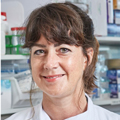
Institute of Cancer Research, London, United Kingdom
Professor Turnbull is a UK clinician-researcher in the field of cancer susceptibility genomics based at the Institute of Cancer Research, London and Genomics England Ltd. She has published extensively in genetic susceptibility to breast, ovarian, testicular and childhood cancers, including early GWAS in breast cancer and identification of RAD51D and RAD51C as susceptibility genes for ovarian cancer.
Invited Speaker, Symposium
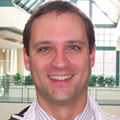
Dr. Danny Vesprini is a Radiation Oncologist who treats both prostate and breast cancer at the Sunnybrook Odette Cancer Centre in Toronto, Affiliate Scientist in the Biological Sciences at the Sunnybrook Research Institute and an Assistant Professor in the Department of Radiation Oncology at the University of Toronto. Dr Vesprini’s research includes a focus on the genetic predisposition to aggressive prostate cancer. He is one of the Principal Investigators of the Sunnybrook Active Surveillance Program, Director of the Male Oncology Research and Education (MORE) program which focusses on men at increased risk of developing prostate cancer (known predisposing gene mutation, strong family history, Western African/Caribbean ancestry), and has expertise in organizing and running large multicentre trials focusing on the introduction of new technologies to the treatment of breast and prostate cancer.
Invited Speaker, Symposium
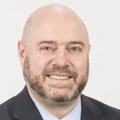
Dr. Joshua Vorstenbosch is a plastic surgeon-scientist at the McGill University Health Centre in Montreal, Quebec. In his clinical practice, he offers full-spectrum comprehensive breast reconstruction using patients’ own tissue and implants. In his research lab, he studies how patients bodies interact with breast implants as well as clinical outcomes following breast cancer reconstruction. After earning his undergraduate and PhD degrees from McGill University, he remained there for his medical studies where he graduated as valedictorian. He then went on to complete his plastic surgery residency at the University of Manitoba which he followed with fellowship training in complex oncologic microvascular reconstruction at Memorial Sloan Kettering Cancer Center in New York City.
Invited Speaker, Public Conference

Medical Genetics, McGill University Health Centre (MUHC), Montréal, QC, Canada
Evan Weber is a genetic counsellor at the McGill University Health Centre in Montreal, specializing in hereditary cancer. He is a Faculty Lecturer in the Department of Human Genetics at McGill University, and is actively involved in the training of genetic counselling students. He is certified by the Canadian Association of Genetic Counsellors and the American Board of Genetic Counselors. He is a graduate of the University of Toronto MSc in Genetic Counselling Program. His clinical and research interests include genetic testing for ovarian cancer, and pediatric hereditary cancer syndromes.
Session Chair, Public Conference

Director Gynecology DMT Research Laboratory,
Memorial Sloan Kettering Cancer Center, New York, NY, United States
Dr Britta Weigelt, PhD, is a Molecular Geneticist and the Director of the Gynecologic Research Laboratory at Memorial Sloan Kettering Cancer Center in New York, USA. Her research interests include the identification of biologically relevant subclasses of breast and gynecologic cancers through high-throughput genomics and functional genomics, the development of strategies to overcome the challenges posed by intra-tumor genetic heterogeneity through cfDNA and single cell sequencing analyses, and the study of the somatic genetics of hereditary breast and gynecologic cancers. She has published over 250 peer reviewed articles, and serves on the Editorial Board of the Journal of the National Cancer Institute and the Journal of Pathology.
Session Chair, Symposium

Stephanie Wong, MD MPH is an assistant professor of surgery at McGill Medical School and a breast surgical oncologist at the JGH Segal Cancer Centre in Montreal, Canada. She received her medical degree and completed general surgery residency at McGill University, her MPH at the Harvard School of Public Health, and in 2019, completed a breast surgical oncology fellowship at Dana-Farber/Brigham and Women’s Cancer Centre and Massachusetts General Hospital. Her clinical and research interests focus on surgical outcomes following neoadjuvant treatment and high-risk patient populations. She directs the High Risk Breast Clinic at the JGH Stroll Cancer Prevention Centre and in 2021 was recipient of the FRQS Chercheurs Boursiers Cliniciens award for research on Optimizing Surgical Decision Making and Prevention Strategies for Women at Elevated Breast Cancer Risk.
Invited Speaker, Public Conference

Dr Zeng is an Assistant Professor and Gynecologic Oncologist at the McGill University Health Centre (MUHC). Dr Zeng is actively involved in clinical trials as a Principal Investigator through the Women’s Health Research Unit, Research Institute- MUHC, one of the most active clinical trial centers in Canada for gynecologic cancers. Dr Zeng was the lead physician on the Implementation of Gynecologic Oncology Initiated Genetic Testing for patients with high grade serous ovarian cancer. This protocol, launched at the MUHC in 2017, improved testing rates, decreased wait times for genetic testing and counselling for patients, and facilitated timely identification of at-risk relatives. It was recognized as a leading practice by Health Standards Organization.
Invited Speaker, Public Conference

Dr. Zogopoulos completed his clinical training at the University of Toronto, and his research training at McGill University and at the University of Toronto. He obtained his PhD in Experimental Medicine at McGill University, where he studied the regulatory mechanisms of a gene responsible for human growth. He pursued postdoctoral research training during his residency, enrolling in the surgeon-scientist program of the University of Toronto. His research fellowship was undertaken at the Samuel Lunenfeld Research Institute, where he studied the hereditary aspects of colon and pancreas cancer. His current research focuses on gastrointestinal cancer genetics, with an emphasis on pancreas cancer.
Invited Speaker, Symposium